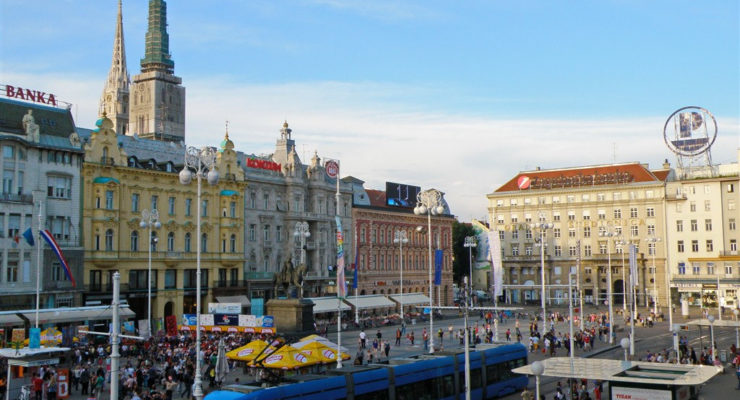
Croatia has enjoyed a renaissance in recent years as one of Europe’s top holiday destinations. But the Adriatic nation, formerly part of socialist Yugoslavia, has been enjoying another boom recently. And unlike its holiday heyday, this one has almost nothing to do with the government.
A few years previously Croatian startups were barely on the map–even among Europeans. Today you may be surprised that some very visible companies are in fact from the Balkan nation.
Take, for example, microfinance firm Oradian. Or salesforce platform Repsly or, possibly most exciting, Rimac Automobili, a producer of high-performance electric cars whose €10 million ($10.66m) funding round in late 2014 marked a significant step for the reputation of startups all over Croatia.
What makes Croatia’s tech flourish so much more impressive, is that it has been achieved with almost no help from the public sector at all. Corruption, bureaucracy, instability and out-of-date tax regimes and education have long held the country back. Change is coming. But it is slow, and sporadic.
Instead Croatia’s tech crowd have had to look internationally for almost everything from mentorship to cash injections. The country, whose 1991 to 1995 civil war cost around 20,000 lives, has already suffered one recent brain drain. If the government doesn’t act fast to reward entrepreneurialism, experts worry, it may endure another.
A consensus on when Croatia’s tech community came to life is tough to find. Marko Srsan, founder of London-based Timeprep, believes it was the introduction of first round fund Seedcamp, in 2010, which gave locals an opportunity to dream big.
Two years later Dave McClure’s early-stage juggernaut Geeks on a Plane (GOAP) was choosing between Poland and Croatia as part of an eastern European drive. It turned to Twitter: Poland, with a population nine times that of its southern counterpart, was the obvious favorite. But Croatia’s techies mobilized online, and an intervention from the country’s government convinced GOAP to come to Zagreb, its historic capital.
McClure would become a second investor for domain data firm WhoAPI and its CEO Goran Duskic. He is one of very few Croatian entrepreneurs who managed to find seed money inside the country–from the Croatian Angel Network. But overall, he tells Red Herring, Croatia’s “biggest weakness is lack of seed and series A capital, and quality mentors who have been through the cycle.
“In the US you can easily find an investor who can mentor you, after he raised $20m and later sold his company for $200 million or IPO’d,” Dukic adds. “In Croatia most startup founders are winging it, and those few that do succeed have to build great connections with other successful entrepreneurs and investors in the EU or US, and do so from scratch. That’s hard to do coming from Croatia.”
Data center firm Supracontrol owes some success to domestic money, particularly the Croatian government’s HAMAG-BICRO fund. But COO Helena Milicevic admits: “More young and innovative Croatian entrepreneurs open their businesses abroad where this is easier to do. Also, in these cases, their communication and access to future potential investors is more facilitate and easier.”
Robert Sekulic is social media manager for Shoutem, an app creator founded in Croatia but now based in Brooklyn, New York. He acknowledges the existence of a mentor network back home–but admits there is a shortfall in those experienced in scaling companies internationally.
Sekulic still believes, however, that Shoutem, spun out of sister company Five, benefitted from having been founded in…

